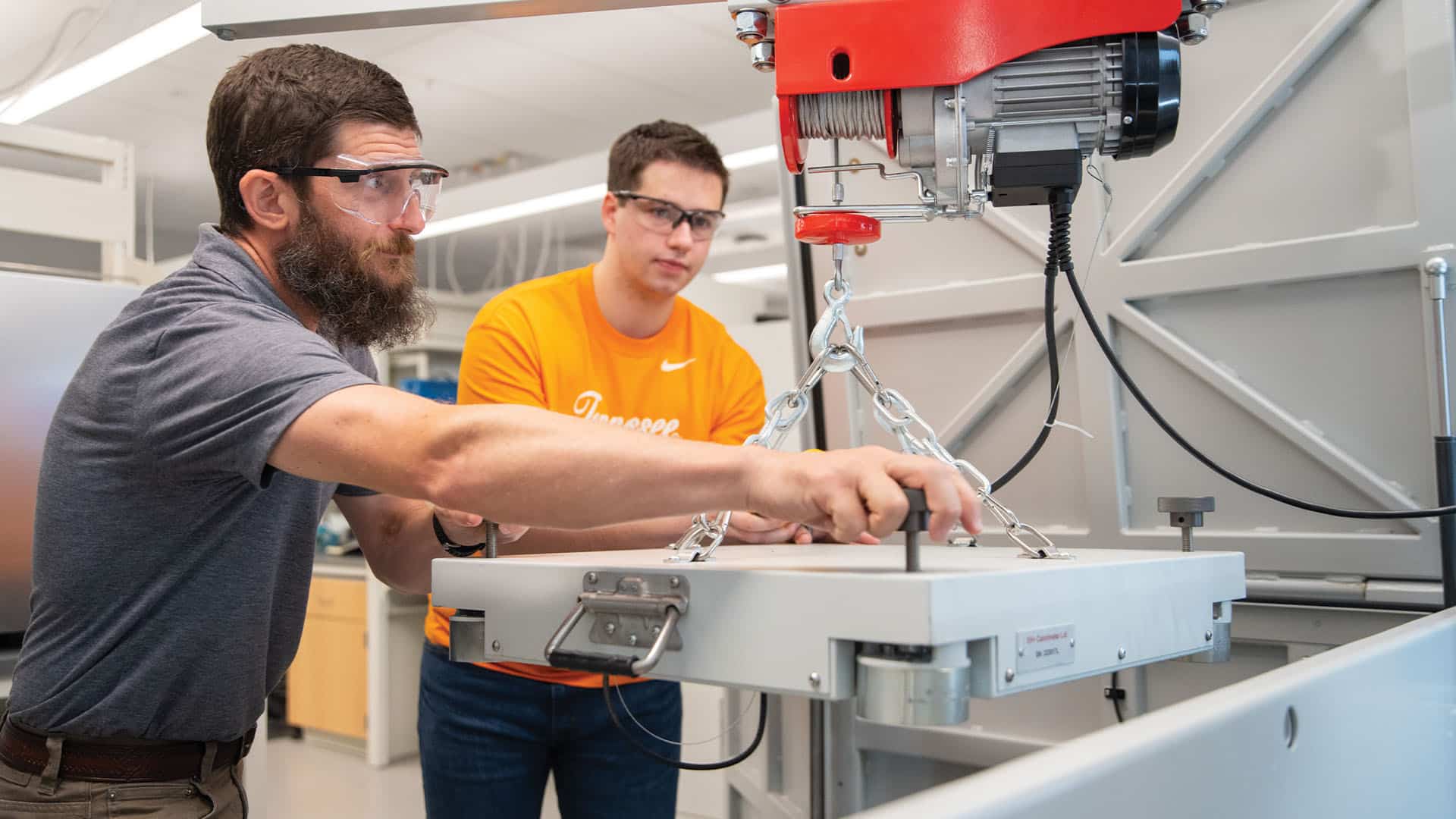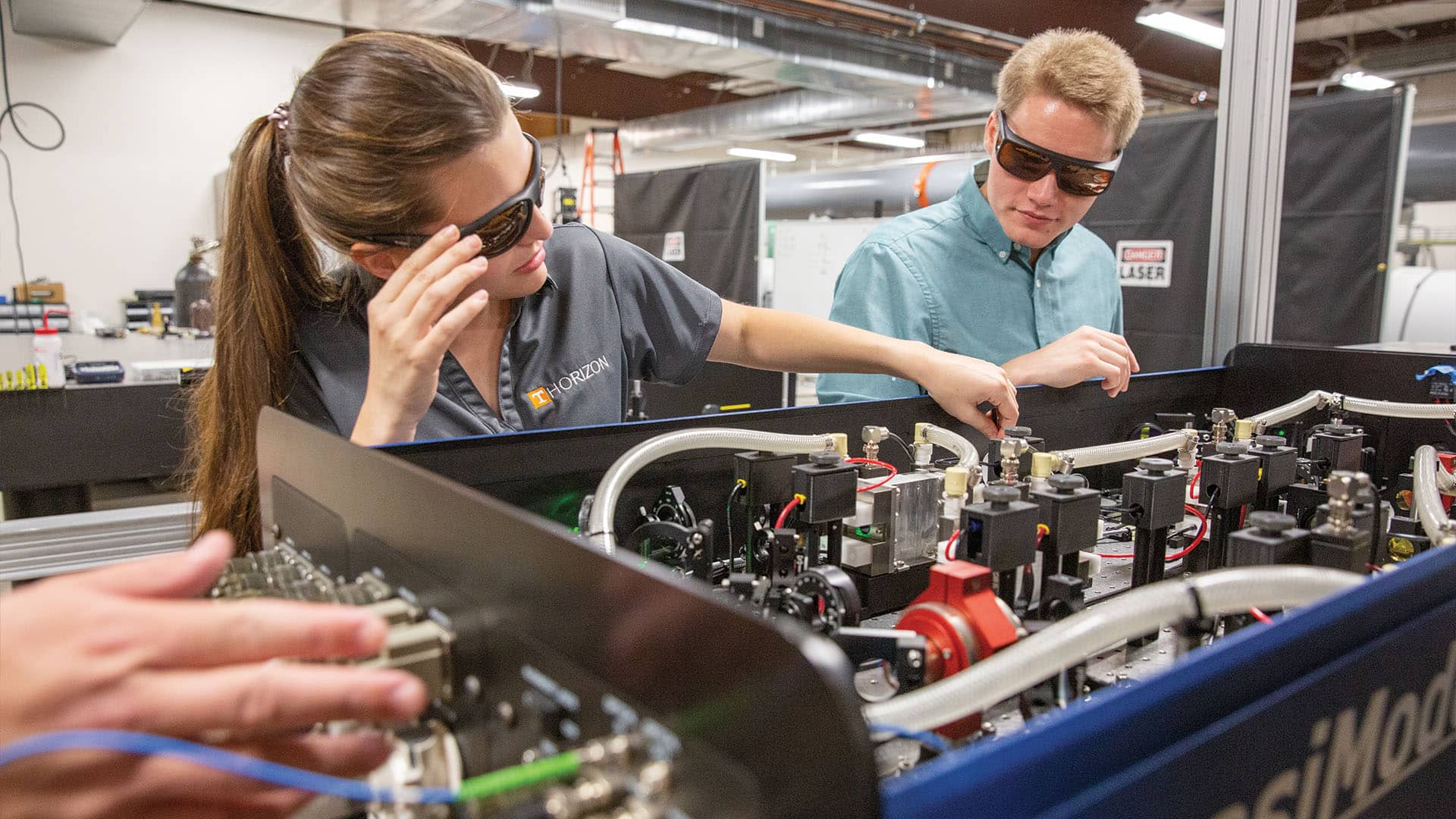
Explore Our
Departments
The college is comprised of eight departments of study, one of which is housed in the UT Institute of Agriculture. Additionally, several graduate-level engineering programs are offered through the University of Tennessee Space Institute in Tullahoma, Tennessee.
Department of
Chemical and Biomolecular Engineering
Chemical engineering deals with the development, design, operation, and management of plants and processes for economical, safe conversion of chemical raw materials to useful products. Biomolecular engineering encompasses system biology, protein engineering, and personalized and nano medicine. The department also offers a program of study in sustainable energy, which includes biofuels, photovoltaics, and fuel cells.
Learn more about their:
Department of
Civil and Environmental Engineering
Civil engineering is concerned with designing the infrastructure of a society. This encompasses construction, transportation, energy needs, and the design and development of urban areas. Environmental engineering works to solve problems with pollution and waste disposal and managing and minimizing damage to communities from water and other natural sources.
Learn more about their:
Min H. Kao Department of
Electrical Engineering and Computer Science
Electrical engineering deals with the application of physical laws governing charged particles. This field impacts many aspects of modern life, from miniature integrated circuits to power systems spanning international boundaries. Computer engineers work with digital processing of images and signals. The study of computer science emphasizes hardware, software, and theory.
Learn more about their:
Department of
Industrial and Systems Engineering
Industrial and systems engineering is concerned with the design of integrated systems involving people, materials, information, equipment, and energy in order to achieve the most efficient function possible while still taking human factors into consideration.
Learn more about their:
Department of
Materials Science and Engineering
Materials science and engineering is primarily involved with the search for basic knowledge of the internal structure and properties of materials. Developments in materials science and engineering are on the cutting edge of modern technology, as new and improved materials are critical to the development of advanced products.
Learn more about their:
Department of
Mechanical, Aerospace, and Biomedical Engineering

Mechanical engineering focuses on the development of mechanical and thermal-fluid science systems that emphasize energy conversion and fluid dynamics. Aerospace engineering involves the design, testing and manufacturing of aircraft and spacecraft. Biomedical engineering is concerned with the design, development, and manufacturing of artificial extensions and implants to assist movement in the human body, such as knee joint replacements.
Learn more about their:
Department of
Nuclear Engineering
Nuclear engineering focuses on the application of sub-atomic processes for the benefit of both humanity and the environment. Traditional nuclear engineering involves working with reactor system analysis, safety and design, as well as other factors involved with reactor operation. The department also offers a track in radiological engineering, which involves the design and safe use of radiation in industry and medicine.
Learn more about their:
Other Academic Programs
The college has academic offerings available within the Herbert College of Agriculture’s Department of Biosystems Engineering and Soil Science as well as at the University of Tennessee Space Institute. Learn more about those programs below.
Biosystems Engineering
Biosystems engineering uses engineering science and mathematics to address opportunities and problems in biological, environmental, ecological, and agricultural systems. Biosystems engineering degrees are offered through the UT Institute of Agriculture.
Learn more about their:
University of Tennessee Space Institute

The University of Tennessee Space Institute (UTSI) is a graduate education and research institution located in Middle Tennessee adjacent to the US Air Force Arnold Engineering Development Center. Established in 1964 as part of UT, it has become an internationally recognized institution for graduate study and research in engineering, physics, and mathematics. UTSI offers graduate degrees in industrial and systems engineering, mechanical engineering, aerospace engineering, biomedical engineering, and physics.
Learn more about their:
